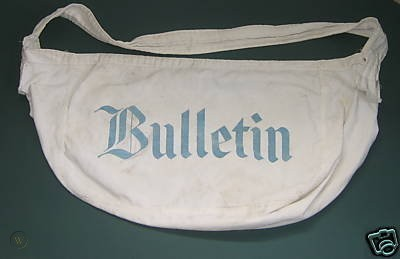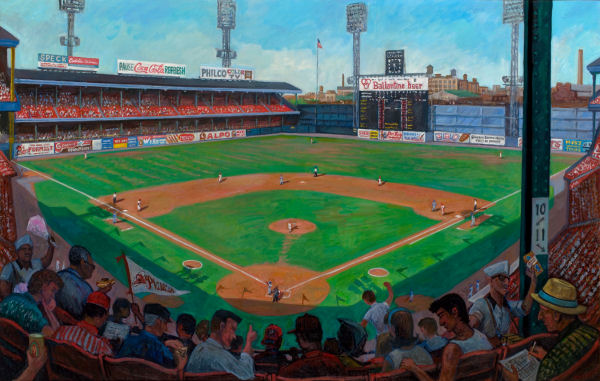My favorite children’s stories?
Hans Brinker and his silver skates was one of the first books I ever remember having. It was a historical novel by Mary Mapes Dodge. Now I consider myself old, in 2023 I shall turn 80 years old. This book, it’s really old, it was written in 1865. I had a bedside table in my room in the apartment my mother and I lived in. This apartment was the 2’nd floor of my great grandmother and great grandfather, Lena and William Peachman. We lived there until until 1950. That book was always on the shelf of the bedside table.
So, I was reading at age seven. And yes, I’m still reading today. Several eye surgeries of late have put a bit of a crimp in this enjoyable endeavor.
Two memories of my great grandfather, who I called Grandpop, by the way, were playing checkers and him wittling. I especially remember him whittling a canoe and shavings always on the floor around his chair. And my goodness, I loved playing checkers anytime. Great grandmother Lena was my surrogate mother during those first seven years. She kept me well fed. She was grandmom, and spoiled me with love.
One other book, “Treasure Island by Robert Louis Stevenson" was always next to the bed. Treasure Island is one book I’ve read more than once. “For sheer storytelling delight and pure adventure, Treasure Island has never been surpassed. From the moment young Jim Hawkins first encounters the sinister Blind Pew at the Admiral Benbow Inn until the climactic battle for treasure on a tropic isle, the novel creates scenes and characters that have fired the imaginations of generations of readers”. Thanks to HTTPS://WWW.GOODREADS.COM/BOOK/SHOW/295.TREASURE_ISLAND for this bit of information.
Here’s a book review on Hans Brinker from - HTTPS://WWW.PLUGGEDIN.COM/BOOK-REVIEWS/HANS-BRINKER-OR-SILVER-SKATES/.
Hans Brinker, age 15, and his sister, Gretel, age 12, live in Holland in the mid-1800s. Ten years before this tale unfolds, their father, Raff, suffered an injury that left him senseless and incapacitated. The children and their mother have lived in poverty ever since. They know Raff buried a large sum of money prior to his fall, but he’s unable to tell them where it’s hidden. Raff also left a fine watch with Dame Brinker just before his accident, making her promise to keep it safe. She knows nothing of its mysterious origins and has often considered selling it to feed the family.Hollanders get around in the winter by skating on the frozen canals. Hans and Gretel can’t afford real skates, so they strap blocks of wood to their feet. Though many wealthier children look down on the Brinkers, a few, including Hilda van Gleck, Peter van Holp and Annie Bouman, show great kindness and generosity. Hilda and Peter buy Hans’ homemade necklaces so he and Gretel can afford real skates without feeling they’ve taken charity. These children provide other necessities for the Brinkers as well.The children of the city are overcome with excitement when they learn of an upcoming skating contest. The fastest girl and the fastest boy will each win a pair of silver skates.As Hans goes to town to purchase his skates, he spies the renowned surgeon Dr. Boekman on the street. Hans offers his skate money to the man, if the doctor will examine Raff. Touched by Hans’ story, the doctor refuses the money and promises to come see Raff when he returns from a trip.Shortly thereafter, Raff’s health deteriorates. Hans and Peter go in search of the doctor, but without success. When Dr. Boekman finally returns, he performs a risky surgery to relieve pressure on Raff’s brain. Raff experiences healing that is miraculous. Though his memory is foggy, he is essentially the same person he was before his accident. He helps the family find the lost money, and the Brinkers are finally able to support themselves in a reasonable manner.Raff also begins to remember the story behind the watch he’d left with Dame Brinker. It was given to him by a man named Thomas Higgs who was fleeing the country. Thomas believed he’d inadvertently poisoned someone. He asked Raff to contact his father and give him the watch. Thomas told Raff to have his father contact him if it was ever safe for him to return to Holland. On one of Dr. Boekman’s visits, the Brinkers discover Thomas Higgs is the doctor’s son. Dr. Boekman explains that he had prevented the poisoned man’s death, so Thomas was not in any legal trouble. He’s thrilled to learn his son may still be alive, and Hans promises to help the doctor find Thomas. Through another coincidence, they trace Thomas to England. He returns home immediately.Hans and Gretel, along with all of the children of the town, join the race for the silver skates. Gretel wins in the girls’ category. Hans is one of the finalists in the boys’ category. When Peter’s skate strap breaks right before the final run, Hans graciously gives his strap to his friend. Peter wins the race.Dr. Boekman later returns to the Brinkers’ house to introduce his son. Thomas will be starting a business in town and offers Raff a job as his right-hand man. When Dr. Boekman learns of Hans’ interest in surgery, he invites the boy to become his apprentice.In a sub-plot, Peter leads a group of boys on a multi-day skating adventure to various Holland cities. The boys (including an English boy named Ben) see numerous historical sites and share stories about famous Dutchmen over the years. The narrator uses this trip to show readers a detailed geography and history of Holland. One legend made famous by this novel is the tale of the Dutch boy who sticks his finger in a dike to save his town from flooding. Peter and the boys say this tale represents the spirit of Holland. Any leak, be it in government, public safety or honor, is quickly filled by a million fingers. The boys lose their money, sail on an ice boat and catch a thief before visiting Peter’s sister’s mansion and returning home for the big race.
My take away from this was that the children of the Netherlands drank beer and wine in place of contaminated water. I thought that was neat.







